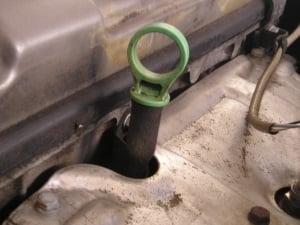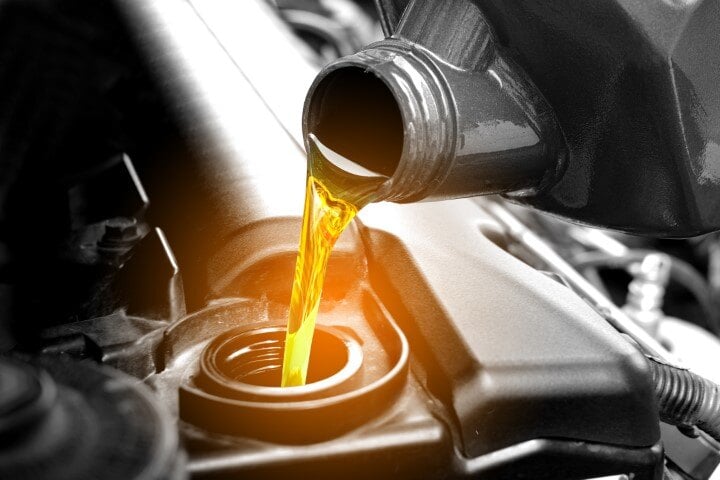Old Oil in Car Symptoms? Signs That It's Time For A Change
Changing your oil within the manufacturer recommendations is the single best thing you can do to maximize the working life of your car’s engine....

To some extent, car maintenance is like cooking. If you want to cook, one approach you can take is to grab a recipe and follow the directions as closely as possible. If the recipe is clear and your techniques are good, more than not you’ll be successful with your finished culinary product.
 By contrast, in order to be a really *good* cook, you need to go past just being able to follow instructions, to being able to synthesize your knowledge of cooking into a process where you can take combinations of ingredients and put them together, without instructions, and come away with a delicious end product.
By contrast, in order to be a really *good* cook, you need to go past just being able to follow instructions, to being able to synthesize your knowledge of cooking into a process where you can take combinations of ingredients and put them together, without instructions, and come away with a delicious end product.
In a certain way, car maintenance is similar, like when you consider when you need to change your oil. The advertisements tell you every 3000 miles. The more authoritative directions tell you every 5000-7000 miles or whatever your owner’s manual says. But what about paying attention to the signs that your car or truck is giving you? What if you forgot how long it’s been since your last oil change?
This is important to get a handle on, because changing your oil regularly is the single best thing you can do to make your car or truck last longer. While your engine will not run without fuel, it’s not a stretch to say that oil is the lifeblood of the engine. Today’s oils are so much more advanced than the base stocks of the past. Not only are they needed to prevent friction and wear of metal parts in the engine, but they also function to clean metal surfaces, neutralize acids to prevent corrosion, keep particulates and impurities from damaging the engine, and even function to dissipate heat and move it away from important areas.
So it’s important to know if your engine needs to have the oil change.How do you answer that question?
Some web sites talk about monitoring the condition of your oil monthly by checking your dipstick. If you do this regularly, you should be able to see how the color and thickness of the oil changes over time. If your oil becomes dark and thick, it’s a sign it need to be changed.
There is one caveat with this, however. Dark oil isn’t, by itself, a sign that it needs to be changed. Oil usually goes in as a light amber color, but it will quickly darken when it is inside the engine. It happens all the time and it doesn't mean the oil needs to changed.
What you want to pay attention to is whether it becomes unusually dark and whether it becomes thick. That can be a key sign telling you that you need to change the oil.
Louder engine noise can be a sign that the oil isn’t lubricating the parts as well as it should. Hearing knocking or unusual clicking noises from the engine can also be a sign that the engine has burned off enough oil that the oil volume is too low.
Either way, it’s time for an oil change.
When the weather gets colder, it’s easier to see your exhaust. But if you happen to see smoke instead of translucent vapor, that’s a sign that you need to have your oil changed. You could also have a oil leak somewhere.
If you’re sitting in your car and you smell oil, that’s a surefire sign that there’s something going on that shouldn’t be. If it isn’t an oil leak, then it could mean your engine is overheating, which causes oil to be burned in the exhaust area. An odor of oil strong enough to be detected inside the car can be an indication that your vehicle is overheating and oil is burning in the exhaust area.
It doesn’t take a master mechanic to know that an overheating engine is bad news and can cause damage to your car, even start a fire. So if you do smell oil inside your car, you want to get an oil change right away.
To summarize, you should notice a theme running through all of these recommendations. They hinge on paying attention to how your car is running. You can follow directions all day long, but just as with cooking, there’s no substitute for simple human observation.

Changing your oil within the manufacturer recommendations is the single best thing you can do to maximize the working life of your car’s engine....

Through the Contact Us forms on the Bell website, we get all kinds of inquiries about fuel problems and engines from the general public. Some of them...

As a consumer, it's unfortunate to spend $20 or more of your hard-earned money on an oil additive that promises to do certain things but fails to...